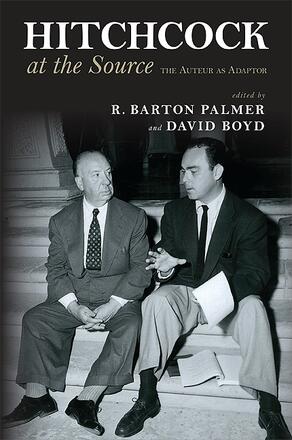
Hitchcock at the Source
The Auteur as Adapter
Alternative formats available from:
Considers the ways in which Alfred Hitchcock adapted and transformed a variety of literary works—novels, plays, and short stories—into film.
Description
The adaptation of literary works to the screen has been the subject of increasing, and increasingly sophisticated, critical and scholarly attention in recent years, but most studies of the subject have continued to privilege literature over film by taking the literary sources as their starting point. Rather than examining the processes by which a particular author has been adapted into a diversity of films by different filmmakers, the contributors in Hitchcock at the Source consider the processes by which a varied range of literary sources have been transformed by one filmmaker into an impressive body of work.
Throughout his career, Alfred Hitchcock transformed a variety of literary sources—novels, plays, short stories—into what is arguably the most coherent and distinctive (narratively, stylistically, and thematically) of all directorial oeuvres. After an introduction surveying the nature and diversity of Hitchcock's sources and locating the current volume in the context of theoretical work on adaptation, nineteen original essays range across the entirety of Hitchcock's career, from the silent period through to the 1970s. In addition to addressing the process of adaptation in particular films in terms of plot and character, the contributors also consider less obvious matters of tone, technique, and ideology; Hitchcock's manipulation of the conventions of literary and dramatic genres such as spy fiction and romantic comedy; and more general problems, such as Hitchcock's shift from plays to novels as his major sources in the course of the 1930s.
R. Barton Palmer is Calhoun Lemon Professor of Literature at Clemson University has written and edited many books on various literary and cinematic subjects. David Boyd is Professor Emeritus of Film and Media Studies at the University of Newcastle, Australia. Palmer and Boyd are coeditors of After Hitchcock: Influence, Imitation, and Intertextuality.
Reviews
"…an invigorating, insightful, and original volume. The focus on the sources of Hitchcock's plots and ideas never diminishes the genius of Hitchcock. The real reward here is the comparison between literary achievement and cinematic achievement. " — CHOICE
"The complexity and sweep of this book are staggering; this is a one-stop source for information on the literary origins of Hitchcock's works. This is a one-of-a-kind text, which fills a real niche in both film and Hitchcock studies. " — Wheeler Winston Dixon, James Ryan Professor of Film Studies, University of Nebraska at Lincoln
"The book is replete with fresh insights into particular films and source texts, fresh approaches to the work of a hugely important and influential screen artist, and fresh evidence for the value of adaptation studies. " — David Sterritt, author of The Films of Alfred Hitchcock